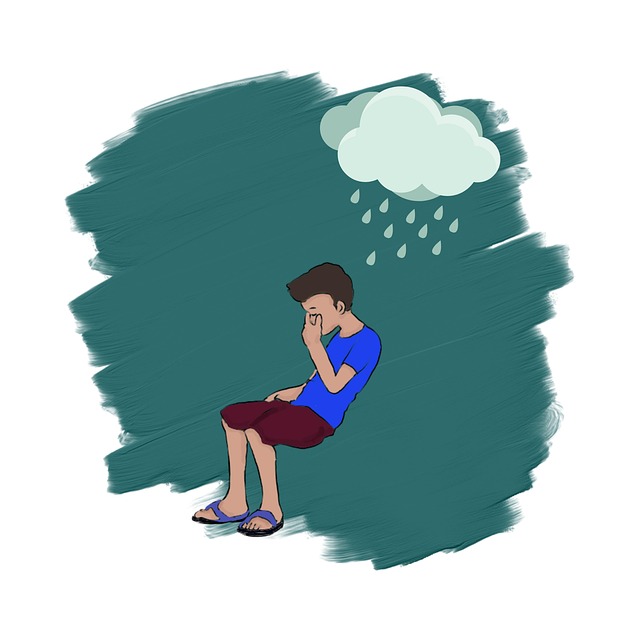Castle Rock Anger Management Therapy prioritizes comprehensive risk management within mental health services by deeply examining client vulnerabilities, cultural backgrounds, and therapeutic environments. Their tailored approach leverages emotional intelligence, stress management workshops, and evidence-based strategies like mindfulness meditation to enhance healing outcomes while mitigating risks. Through continuous monitoring, proactive interventions, and a focus on cultural sensitivity, they ensure a safe, effective, and holistic therapy experience for diverse patient populations.
In the demanding field of mental health, effective risk management planning is paramount. This comprehensive guide explores essential strategies tailored for professionals like those at Castle Rock Anger Management Therapy. From understanding the nuanced risks inherent in mental health practice to implementing robust safety measures, each step is crucial. We delve into identifying potential hazards, crafting a detailed risk plan, and continually evaluating practices to ensure patient well-being and professional resilience.
- Understanding Risk in Mental Health Practice
- Identifying Potential Hazards and Vulnerabilities
- Developing a Comprehensive Risk Management Plan
- Implementing Strategies for Safe Practice
- Continuous Monitoring and Evaluation
Understanding Risk in Mental Health Practice

In mental health practice, understanding risk goes beyond simply identifying potential hazards. It involves a nuanced comprehension of the complex interplay between client vulnerabilities, cultural backgrounds, and the therapeutic environment. At Castle Rock Anger Management Therapy, we recognize that each individual’s journey towards healing is unique, shaped by their personal history, societal influences, and coping mechanisms. This knowledge underscores the importance of a tailored risk management approach in mental healthcare practice.
Cultural sensitivity in mental healthcare practice plays a pivotal role in mitigating risks effectively. Recognizing and respecting diverse cultural perspectives empowers therapists to create safe spaces that resonate with clients from various backgrounds. Additionally, integrating stress management workshops within therapeutic frameworks can equip individuals with valuable coping strategies, enhancing their ability to navigate challenging situations and promoting anxiety relief.
Identifying Potential Hazards and Vulnerabilities

Mental health professionals, much like any other experts in their field, operate within a complex environment filled with potential hazards and vulnerabilities. It’s akin to Castle Rock Anger Management Therapy, where solid defenses are built to mitigate risks. The first step in risk management planning is to meticulously identify these hazards, which can range from stress and burnout to ethical dilemmas and legal pitfalls. By understanding the landscape, professionals can better fortify their practices, ensuring they’re equipped to handle challenges that may arise.
Among the vulnerabilities, self-esteem improvement plays a pivotal role. Emotional intelligence becomes a crucial tool in navigating turbulent situations, fostering positive thinking among clients, and maintaining professional boundaries. These strategies not only enhance therapy outcomes but also safeguard against potential risks. Just as Castle Rock Anger Management Therapy focuses on transforming aggression into constructive behavior, mental health professionals must adapt their tools to address emerging challenges, ensuring they provide safe and effective care.
Developing a Comprehensive Risk Management Plan

Developing a comprehensive risk management plan is an integral part of ensuring the safety and well-being of mental health professionals, especially those providing Castle Rock Anger Management Therapy. This strategic document should encompass a multi-faceted approach to mitigate potential risks and promote a healthy work environment. The first step involves identifying various hazards, including excessive caseload, challenging client behaviors, and personal burnout. Once these are pinpointed, specific strategies can be tailored.
For instance, implementing coping skills development programs can empower professionals to manage stress and maintain emotional balance. Encouraging positive thinking through mindfulness techniques and trauma support services can further bolster resilience. A well-rounded risk management plan should also include protocols for crisis intervention, regular staff debriefings, and clear guidelines for seeking additional support when needed. By proactive planning, mental health providers can navigate their professional labyrinth with enhanced confidence and resilience.
Implementing Strategies for Safe Practice

Implementing strategies for safe practice is a cornerstone in risk management planning for mental health professionals. At Castle Rock Anger Management Therapy, we emphasize evidence-based approaches that promote resilience and well-being among our clients. Incorporating mindfulness meditation techniques into therapy sessions not only enhances the therapeutic process but also serves as a powerful tool for depression prevention. By fostering an environment of open communication and cultural sensitivity in mental healthcare practice, we ensure that each client receives care tailored to their unique needs and backgrounds.
Moreover, integrating evidence-based practices requires ongoing training and self-care for professionals. Regular workshops and seminars focused on advanced techniques in anger management, coupled with mindfulness exercises, empower therapists to handle complex cases effectively while maintaining a healthy work-life balance. This holistic approach not only reduces professional burnout but also improves client outcomes, making our services at Castle Rock Anger Management Therapy renowned in the field of mental healthcare.
Continuous Monitoring and Evaluation

Mental health professionals face unique challenges when it comes to risk management, as they deal with highly sensitive and vulnerable populations. Continuous monitoring and evaluation are essential components of a robust risk management plan. Regularly assessing patient progress and mood fluctuations can help identify potential risks early on. This proactive approach enables therapists to implement necessary interventions promptly, ensuring the safety of their clients.
At Castle Rock Anger Management Therapy, we understand that effective risk assessment involves not only tracking symptoms but also considering cultural sensitivity in mental healthcare practice. By integrating Depression Prevention strategies into our evaluations, we aim to foster Emotional Regulation among patients from diverse backgrounds. This tailored approach not only addresses individual needs but also promotes a more inclusive and responsive therapeutic environment.
Mental health professionals, much like navigators charting uncharted waters, must constantly assess risks to ensure safe practice. By understanding risk in their work, identifying potential hazards, and developing a robust risk management plan, therapists can create a secure environment for both themselves and their clients. Implementing evidence-based strategies for safe practice, coupled with continuous monitoring and evaluation, is paramount. Just as Castle Rock Anger Management Therapy demonstrates expertise in managing anger-related issues, mental health professionals must employ similar strategic approaches to mitigate risks, fostering a culture of safety and resilience within their practices.














